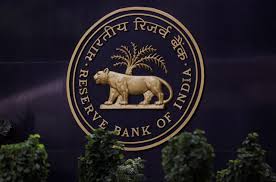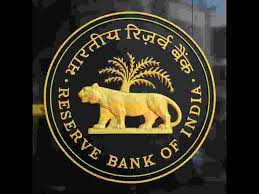RBI Approves Merger of National and Cosmos Co-operative Banks
Introduction: RBI’s Approval for Bank Merger
The Reserve Bank of India (RBI) has granted approval for the merger of the National Co-operative Bank and Cosmos Co-operative Bank. This approval marks a significant step in India’s banking sector, as it aims to create a stronger and more resilient cooperative banking structure. The merger of these two co-operative banks will allow for the optimization of resources, enhanced customer services, and better financial stability.
The Impact on the Banking Sector
The merger is expected to strengthen the financial capabilities of both institutions. By combining their resources, the newly formed entity will be in a better position to offer improved banking services to its customers. Furthermore, this move aligns with the RBI’s efforts to streamline the co-operative banking sector and reduce the risks associated with financial instability in smaller banks.
This merger also has the potential to set a precedent for other smaller banks in India. It is part of a larger vision of consolidating the banking system to make it more robust and competitive. The merger will likely bring about a more diverse portfolio of financial products, attracting a larger customer base, including both urban and rural populations.
Strategic Benefits of the Merger
One of the key strategic benefits of this merger is the consolidation of financial resources. By joining forces, the merged banks can leverage their combined capital, assets, and expertise to better serve their clientele. The resulting larger bank will be able to benefit from economies of scale, reduce operational costs, and enhance customer satisfaction.
Moreover, the integration of advanced banking technologies and systems will enable the merged entity to offer digital banking solutions to its customers, making it more accessible and convenient. This merger also aims to provide financial inclusion to a larger population across India.
Operational Changes and Integration Process
As with any merger, there will be operational challenges, particularly concerning the integration of staff, technology, and services. Both banks will have to work on harmonizing their systems, policies, and customer service protocols. However, the RBI’s approval ensures that these challenges will be managed with a clear regulatory framework to guide the process.
The integration process is expected to be gradual, allowing customers to transition smoothly to the merged entity without disruptions in services. Staff members from both banks will undergo training and familiarization with the new operating structure to ensure a seamless merger process.

Why this News is Important
Significance of the Merger for the Co-operative Banking Sector
The approval by RBI for the merger of National and Cosmos Co-operative Banks has broad implications for India’s co-operative banking sector. Cooperative banks play an important role in providing financial services, especially to underserved communities in both urban and rural regions. This merger highlights the ongoing effort to improve the strength and operational efficiency of smaller banks, allowing them to compete with larger commercial banks.
The merger also supports the government’s agenda of consolidating India’s financial institutions to ensure better stability and financial inclusiveness. It offers a great opportunity to enhance service quality, reduce financial risks, and increase operational efficiency. The central bank’s approval of such mergers signifies the government’s commitment to reforming the cooperative banking system and ensuring long-term financial stability.
Impact on Customers and Banking Ecosystem
For customers, the merger brings promises of better banking services, improved access to financial products, and a more reliable banking experience. The combined resources of both banks will enable the new entity to offer more competitive loan products, higher deposit rates, and a wider range of financial services. This is particularly crucial in ensuring that customers in rural areas and semi-urban locations receive the attention and financial tools they need.
The news is also significant for students preparing for government exams as it highlights important developments in the banking sector. It emphasizes the growing importance of cooperative banks in India and how mergers and acquisitions are shaping the future of financial services in the country.
Historical Context
Background of Co-operative Banking in India
Co-operative banks have a long-standing history in India. These banks were established with the aim of providing affordable financial services to rural communities and small farmers who had limited access to traditional commercial banks. Initially, co-operative banks were a crucial part of India’s financial inclusion strategy, ensuring that even the most marginalized sections of society had access to banking.
The National and Cosmos Co-operative Banks, like many others, have faced challenges over the years, including financial instability and a lack of sufficient capital to meet their operational needs. Over time, the government and the RBI have taken steps to strengthen these institutions. This includes encouraging mergers and consolidation to form more robust and sustainable banks that can better serve their customers and withstand financial pressures.
The current merger of these two co-operative banks represents a modern trend in the Indian banking sector, where smaller institutions are coming together to create stronger, more competitive entities. This is part of a broader movement to modernize the co-operative banking system in India, providing a stable platform for both retail and wholesale banking.
Key Takeaways from the Merger of National and Cosmos Co-operative Banks
| S.No | Key Takeaway |
|---|---|
| 1 | RBI Approval: The Reserve Bank of India has approved the merger of National and Cosmos Co-operative Banks to create a stronger entity. |
| 2 | Banking Sector Strengthening: The merger aims to enhance the stability and operational efficiency of co-operative banks in India. |
| 3 | Customer Benefits: The new merged bank will offer improved banking services, better financial products, and enhanced accessibility. |
| 4 | Financial Inclusion: The merger supports the goal of increasing financial inclusion by serving both urban and rural populations more effectively. |
| 5 | Operational Integration: The merger will involve integrating the systems and processes of both banks, with an emphasis on smooth customer transitions. |
Important FAQs for Students from this News
What is the significance of the RBI’s approval for the merger of National and Cosmos Co-operative Banks?
The RBI’s approval for the merger is significant because it strengthens the cooperative banking sector in India, consolidating resources, improving financial stability, and enhancing customer services. It aligns with the government’s vision to reform the cooperative banking system and make it more resilient and competitive.
How will the merger affect customers of the two banks?
Customers will benefit from enhanced banking services, better financial products, and increased access to digital banking solutions. The combined bank will offer a larger portfolio of loans, deposits, and other financial services.
What role do cooperative banks play in India’s financial ecosystem?
Cooperative banks play a crucial role in providing affordable financial services, especially to rural and underserved communities. They ensure financial inclusion and offer services like loans and savings accounts to small farmers, traders, and individuals with limited access to commercial banks.
What are the main challenges associated with the merger of these two banks?
The main challenges include integrating the banks’ systems, processes, and staff, harmonizing their services, and ensuring a smooth transition for customers. However, the RBI’s oversight ensures the merger proceeds smoothly.
What is the expected outcome of the merger for the cooperative banking sector in India?
The merger is expected to set a precedent for other cooperative banks to consolidate and modernize, which will enhance the overall competitiveness and stability of the cooperative banking sector in India.
Some Important Current Affairs Links

















